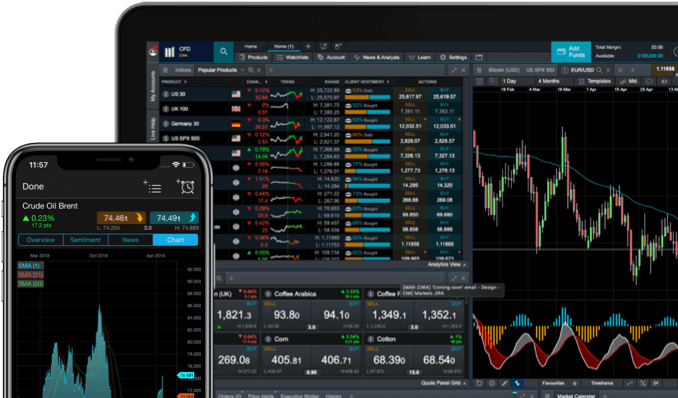As discussed above, a trader’s margin call can be calculated depending on their margin requirement and account equity (revaluation) level. However, there is no specific margin call formula as it differs for each individual circumstance. As the maintenance margin requirement stands at 50% for our customers, when the value of their account decreases to only half of the margin level, this will start the liquidation process.
As an example, a customer is using his spread betting or CFD trading account to trade on the price of gold with CMC Markets. With an account revaluation of £1000 and a total margin of £200, there are no problems yet as the account value is worth five times the amount of margin. However, the market suddenly turns in an unfavourable direction and his account revaluation is reduced to £180. As the value of his account is now below the margin level of £200, this prompts a margin call. When its value reaches 80% of his total margin (£160), we send out a notification email. The trader now has the opportunity to either invest more funds or sell his assets in order to reach our reset level. If the market continues to regress and his account revaluation falls below 50% of the margin level (£100), this means that his account is due to be liquidated and the platform will close any trades where the market is open. All securities held will then be sold for cash as part of our close out process.

















